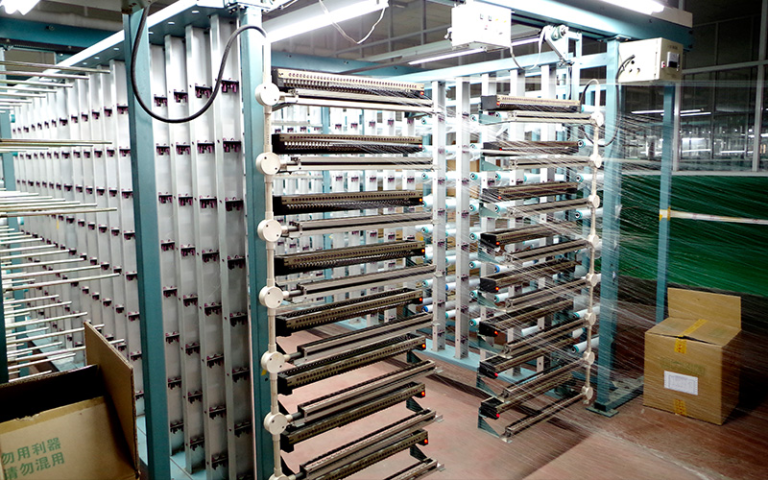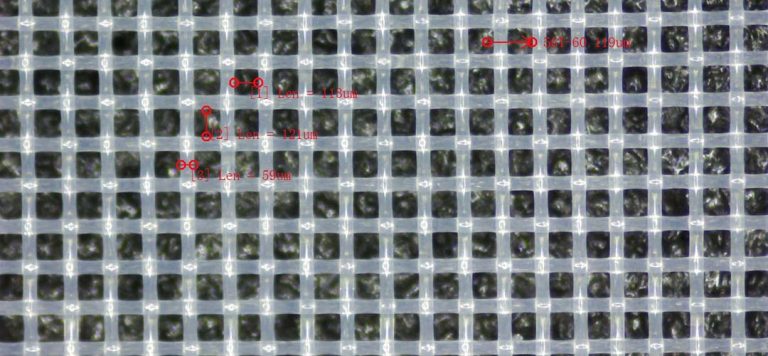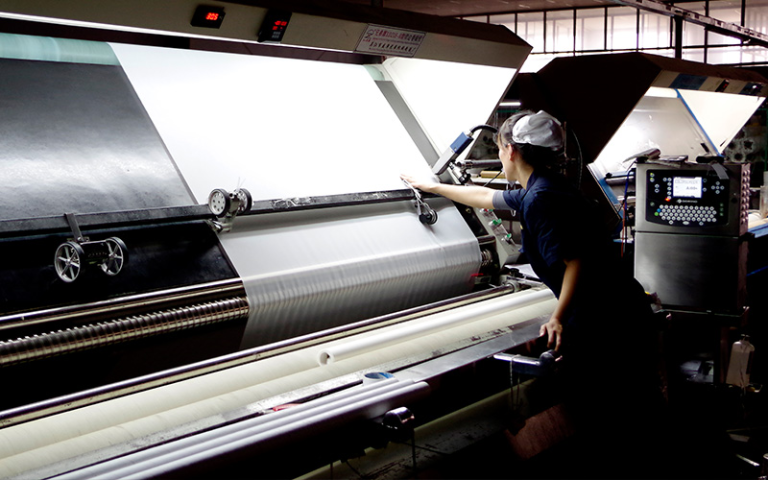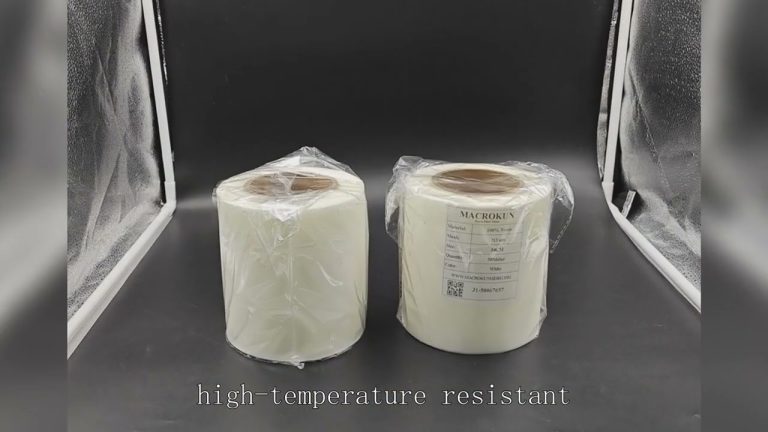Table of Contents
Applications of 200 micron nylon mesh in Liquid Filtration
200 micron nylon mesh is increasingly recognized for its versatility and effectiveness in various liquid filtration applications. This fine mesh material, characterized by its precise openings, serves as an essential component in numerous industries, including food and beverage, pharmaceuticals, and water treatment. The ability of 200 micron nylon mesh to filter out particles while allowing liquids to pass through makes it an ideal choice for ensuring product purity and quality.
In the food and beverage industry, the use of 200 micron nylon mesh is particularly significant. It is commonly employed in the filtration of juices, oils, and other liquids to remove unwanted solids, such as pulp, sediment, and other particulates. This not only enhances the clarity and taste of the final product but also extends its shelf life by preventing spoilage caused by contaminants. Furthermore, the mesh’s durability and resistance to chemicals make it suitable for various processing conditions, ensuring that it can withstand the rigors of industrial applications without compromising its structural integrity.
| Class | Mesh Count(/cm) | Mesh Count(/inch) | Thread Dia(um) | Mesh Opening(um) | Thickness(um) | Weight(g/m2) |
| NL4/1950 | 4 | 10 | 550 | 1950 | 1100 | 307 |
| NL5/1500 | 5 | 13 | 500 | 1500 | 1000 | 318 |
| NL6/1267 | 6 | 15 | 400 | 1267 | 800 | 244 |
| NL7/1079 | 7 | 18 | 350 | 1079 | 700 | 218 |
| NL8/900 | 8 | 20 | 350 | 900 | 700 | 249 |
| NL9/861 | 9 | 23 | 250 | 861 | 500 | 143 |
| NL9/811 | 9 | 23 | 300 | 811 | 600 | 206 |
| NL10/750 | 10 | 25 | 250 | 750 | 500 | 159 |
| NL10/700 | 10 | 25 | 300 | 700 | 600 | 229 |
| NL12/583 | 12 | 30 | 250 | 583 | 500 | 191 |
| NL12/533 | 12 | 30 | 300 | 533 | 600 | 274 |
| NL14/514 | 14 | 36 | 200 | 514 | 340 | 142 |
| NL16/425 | 16 | 40 | 200 | 425 | 340 | 160 |
| NL20/350 | 20 | 50 | 150 | 350 | 255 | 113 |
| NL20/300 | 20 | 50 | 200 | 300 | 340 | 200 |
| NL24/267 | 24 | 60 | 150 | 267 | 255 | 135 |
| NL28/237 | 28 | 70 | 120 | 237 | 204 | 101 |
| NL30/213 | 30 | 76 | 120 | 213 | 204 | 110 |
| NL32/213 | 32 | 80 | 100 | 213 | 170 | 80 |
| NL36/178 | 36 | 90 | 100 | 178 | 170 | 90 |
| NL40/150 | 40 | 100 | 100 | 150 | 170 | 100 |
| NL43/153 | 43 | 110 | 80 | 153 | 136 | 70 |
| NL48/128 | 48 | 120 | 80 | 128 | 136 | 77 |
| NL56/119 | 56 | 140 | 60 | 119 | 102 | 50 |
| NL64/96 | 64 | 160 | 60 | 96 | 102 | 58 |
| NL72/89 | 72 | 180 | 50 | 89 | 85 | 45 |
| NL80/75 | 80 | 200 | 50 | 75 | 85 | 50 |
| NL100/57 | 100 | 250 | 43 | 57 | 73 | 46 |
| NL110/48 | 110 | 280 | 43 | 48 | 73 | 52 |
| NL120/48 | 120 | 300 | 35 | 48 | 60 | 37 |
| NL120/40 | 120 | 300 | 43 | 40 | 73 | 55 |
| NL130/42 | 130 | 330 | 35 | 42 | 60 | 40 |
| NL130/34 | 130 | 330 | 43 | 34 | 73 | 61 |
| NL140/36 | 140 | 350 | 35 | 36 | 60 | 43 |
| NL157/25 | 157 | 400 | 43 | 25 | 73 | 74 |
| NL180/20 | 180 | 450 | 39 | 20 | 66 | 68 |
| NL200/15 | 200 | 500 | 39 | 15 | 66 | 76 |
| NL220/10 | 220 | 550 | 39 | 10 | 66 | 84 |
| NL240/5 | 240 | 600 | 39 | 5 | 66 | 91 |
Similarly, in the pharmaceutical sector, the importance of maintaining stringent quality control cannot be overstated. Here, 200 micron nylon mesh plays a crucial role in the filtration of active ingredients and solvents, ensuring that any impurities are effectively removed before the final product is formulated. This level of filtration is vital for compliance with regulatory standards, as even minute particles can affect the efficacy and safety of pharmaceutical products. The mesh’s ability to provide consistent filtration performance contributes to the overall reliability of the manufacturing process, thereby safeguarding public health.
Moreover, water treatment facilities also benefit significantly from the application of 200 micron nylon mesh. In these settings, the mesh is utilized to filter out larger debris and particulates from raw water sources before further purification processes take place. By removing these contaminants early in the treatment process, the mesh helps to improve the efficiency of subsequent filtration stages, such as microfiltration and ultrafiltration. This not only enhances the quality of the treated water but also reduces the wear and tear on more sensitive filtration equipment, ultimately leading to cost savings for water treatment facilities.
In addition to these applications, 200 micron nylon mesh is also employed in various industrial processes where liquid filtration is necessary. For instance, it is used in the production of paints and coatings, where it helps to eliminate clumps and impurities that could affect the final product’s appearance and performance. Similarly, in the chemical industry, the mesh is utilized to filter out particulates from various liquids, ensuring that the end products meet the required specifications for purity and quality.
As industries continue to evolve and demand higher standards for product quality, the role of 200 micron nylon mesh in liquid filtration will likely expand. Its unique properties, including chemical resistance, durability, and precise filtration capabilities, make it an indispensable tool across multiple sectors. Consequently, businesses that prioritize the implementation of effective filtration solutions will find that investing in 200 micron nylon mesh not only enhances their operational efficiency but also contributes to the overall quality and safety of their products. In conclusion, the applications of 200 micron nylon mesh in liquid filtration are vast and varied, underscoring its importance in maintaining the integrity of products across numerous industries.
Benefits of Using 200 Micron Nylon Mesh for Air Filtration
When it comes to air filtration, choosing the right material is crucial to ensure optimal performance. One material that has gained popularity in recent years is 200 micron nylon mesh. This versatile material offers a wide range of benefits that make it perfect for air filtration applications.

One of the key benefits of using 200 micron nylon mesh for air filtration is its durability. Nylon is known for its strength and resilience, making it ideal for use in high-pressure and high-temperature environments. This means that the mesh can withstand the rigors of air filtration without tearing or breaking, ensuring long-lasting performance.
In addition to its durability, 200 micron nylon mesh also offers excellent filtration efficiency. The small pore size of the mesh allows it to capture even the smallest particles, ensuring that the air passing through is clean and free of contaminants. This makes it ideal for applications where air quality is a top priority, such as in clean rooms or laboratories.
Another benefit of using 200 micron nylon mesh for air filtration is its versatility. Nylon mesh can be easily customized to meet specific filtration requirements, making it suitable for a wide range of applications. Whether you need a fine mesh for capturing small particles or a coarser mesh for larger contaminants, nylon can be tailored to suit your needs.
Furthermore, 200 micron nylon mesh is easy to clean and maintain, making it a cost-effective option for air filtration. Unlike some other materials, nylon mesh can be washed and reused multiple times without losing its filtration efficiency. This not only helps to reduce waste but also saves money in the long run.
In addition to its benefits for air filtration, 200 micron nylon mesh is also an excellent choice for liquid filtration. The same properties that make it ideal for air filtration – durability, efficiency, and versatility – also make it well-suited for filtering liquids. Whether you need to remove impurities from water, oils, or chemicals, nylon mesh can provide reliable filtration performance.
Overall, 200 micron nylon mesh is a versatile and effective material for air and liquid filtration. Its durability, efficiency, and versatility make it a popular choice for a wide range of applications, from clean rooms to industrial settings. Whether you need to remove particles from the air or impurities from liquids, nylon mesh can provide the reliable filtration performance you need.
Comparing 200 Micron Nylon Mesh to Other Filtration Materials
When it comes to liquid and air filtration, choosing the right material is crucial to ensure optimal performance. One material that has gained popularity in recent years is 200 micron nylon mesh. This versatile material offers a wide range of benefits that make it ideal for various filtration applications. In this article, we will compare 200 micron nylon mesh to other filtration materials to highlight its advantages and why it is the perfect choice for liquid and air filtration.
One of the key advantages of 200 micron nylon mesh is its durability. Unlike some other filtration materials that can degrade over time, nylon mesh is known for its strength and longevity. This means that it can withstand high pressures and temperatures without losing its effectiveness, making it a reliable option for demanding filtration tasks.
Another important factor to consider when choosing a filtration material is its resistance to chemicals. 200 micron nylon mesh is highly resistant to a wide range of chemicals, including acids, bases, and solvents. This makes it suitable for use in industries where exposure to harsh chemicals is common, such as the pharmaceutical and chemical industries.
In addition to its durability and chemical resistance, 200 micron nylon mesh also offers excellent filtration efficiency. The fine mesh size of 200 microns allows it to effectively capture particles and contaminants, ensuring that the filtered liquid or air is clean and free from impurities. This high filtration efficiency makes nylon mesh an ideal choice for applications where purity is essential, such as in food and beverage production.
Compared to other filtration materials, such as stainless steel or polyester, 200 micron nylon mesh is also lightweight and easy to handle. This makes it easier to install and replace, reducing downtime and maintenance costs. Additionally, nylon mesh is flexible and can be easily cut to size, making it adaptable to a wide range of filtration systems and configurations.
One of the main advantages of 200 micron nylon mesh is its affordability. Compared to some other filtration materials, nylon mesh is a cost-effective option that offers excellent value for money. This makes it a popular choice for businesses looking to reduce their filtration costs without compromising on quality.
In conclusion, 200 micron nylon mesh is a versatile and reliable filtration material that offers a range of benefits for liquid and air filtration applications. Its durability, chemical resistance, filtration efficiency, and affordability make it the perfect choice for industries where clean and pure liquids or air are essential. Whether you are filtering water, chemicals, or air, nylon mesh is a versatile option that can meet your filtration needs effectively. Consider using 200 micron nylon mesh for your next filtration project and experience the benefits it has to offer.
Maintenance Tips for 200 Micron Nylon Mesh Filters
Maintaining the efficiency and longevity of 200 micron nylon mesh filters is essential for optimal performance in liquid and air filtration applications. These filters are widely recognized for their durability and effectiveness, but like any filtration system, they require regular maintenance to ensure they continue to function at their best. One of the primary maintenance tasks involves routine cleaning, which is crucial for preventing clogging and ensuring that the filter media remains effective. Depending on the application and the nature of the particulates being filtered, the frequency of cleaning may vary. For instance, in environments with high levels of contaminants, more frequent cleaning may be necessary to maintain flow rates and filtration efficiency.
When it comes to cleaning 200 micron nylon mesh filters, it is important to use the appropriate methods to avoid damaging the mesh. A gentle rinse with water is often sufficient for removing loose debris and particulates. However, in cases where the filter has accumulated more stubborn contaminants, a mild detergent solution can be employed. It is advisable to avoid harsh chemicals or abrasive materials, as these can compromise the integrity of the nylon mesh. After cleaning, thoroughly rinsing the filter to remove any residual cleaning agents is essential, as leftover chemicals can interfere with the filtration process.
In addition to regular cleaning, inspecting the filter for signs of wear and tear is a critical aspect of maintenance. Over time, the mesh may develop holes or tears, which can significantly reduce its effectiveness. Therefore, periodic visual inspections should be conducted to identify any damage. If any defects are found, it is important to replace the filter promptly to prevent compromised filtration performance. Furthermore, ensuring that the filter is properly installed and secured can help prevent unnecessary stress on the mesh, thereby extending its lifespan.
Another important consideration in the maintenance of 200 micron nylon mesh filters is monitoring the flow rate. A noticeable decrease in flow can indicate that the filter is becoming clogged or that it requires cleaning. By keeping an eye on the flow rate, operators can take proactive measures to clean or replace the filter before it leads to more significant issues in the filtration system. This proactive approach not only enhances the efficiency of the filtration process but also minimizes downtime and maintenance costs.
Moreover, it is beneficial to keep a maintenance log that records cleaning dates, inspection results, and any replacements made. This log can serve as a valuable reference for understanding the filter’s performance over time and can help in predicting when future maintenance will be necessary. By establishing a routine maintenance schedule based on the specific application and environmental conditions, users can ensure that their 200 micron nylon mesh filters remain in optimal condition.
In conclusion, maintaining 200 micron nylon mesh filters involves a combination of regular cleaning, thorough inspections, monitoring flow rates, and keeping detailed maintenance records. By adhering to these practices, users can maximize the efficiency and lifespan of their filters, ensuring that they continue to provide reliable performance in liquid and air filtration applications. Ultimately, a commitment to proper maintenance not only enhances filtration effectiveness but also contributes to the overall efficiency of the systems in which these filters are employed.
How to Choose the Right 200 Micron Nylon Mesh for Your Needs
When it comes to liquid and air filtration, choosing the right mesh material is crucial to ensure optimal performance. One popular option for filtration applications is 200 micron nylon mesh. This type of mesh is known for its durability, flexibility, and excellent filtration capabilities. In this article, we will discuss the benefits of using 200 micron nylon mesh for liquid and air filtration, as well as provide some tips on how to choose the right mesh for your specific needs.
200 micron nylon mesh is a versatile material that is commonly used in a wide range of filtration applications. Its fine mesh size allows for efficient filtration of particles and contaminants, making it ideal for use in industries such as food and beverage, pharmaceuticals, and water treatment. The nylon material is also resistant to chemicals and abrasion, making it a durable option for long-term use.
One of the key benefits of using 200 micron nylon mesh for filtration is its high flow rate. The fine mesh size allows for the passage of liquids and gases while effectively capturing particles and contaminants. This results in improved filtration efficiency and reduced maintenance costs. Additionally, nylon mesh is easy to clean and maintain, making it a cost-effective option for filtration systems.
When choosing the right 200 micron nylon mesh for your needs, there are several factors to consider. First, consider the type of particles or contaminants that need to be filtered. Different mesh sizes are suitable for different types of filtration, so it is important to choose a mesh size that is appropriate for the specific application.

Next, consider the flow rate requirements of your filtration system. The flow rate of the mesh will determine how quickly liquids or gases can pass through the material. For applications that require high flow rates, a larger mesh size may be more suitable. Conversely, for applications that require fine filtration, a smaller mesh size may be necessary.
It is also important to consider the durability and chemical resistance of the nylon mesh. Depending on the specific application, the mesh may be exposed to harsh chemicals or abrasive materials. Choosing a nylon mesh that is resistant to chemicals and abrasion will ensure long-lasting performance and reliability.
In addition to these factors, it is important to consider the size and shape of the mesh. Nylon mesh is available in a variety of sizes and shapes, including sheets, rolls, and custom-cut pieces. Choosing the right size and shape of mesh will depend on the specific requirements of your filtration system.

Overall, 200 micron nylon mesh is an excellent choice for liquid and air filtration applications. Its durability, flexibility, and high flow rate make it a versatile option for a wide range of industries. By considering factors such as mesh size, flow rate, durability, and shape, you can choose the right nylon mesh for your specific filtration needs.




